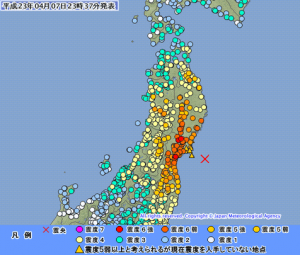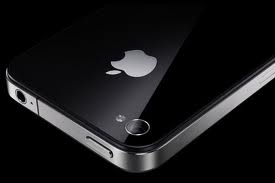Money matters…
…it does. Research shows that over a certain amount (depending on your personal circumstances), more money does not make you happier, but not having enough is definitely going to put a dent in your quality of life.
I’ve been thinking about investing for a while now, but only recently did I start reading up on it. It’s a huge and fascinating subject.
For teachers, saving and investment may not seem so important, but at least for those of us in Japan, the safety and dependability of our future pensions has some quite large question marks hanging over them. Are we even going to receive a pension? If we do, is it going to be enough to live on?
Employment stability is another concern. A few years ago, I took a job where I was initially assured that I would be able to stay there indefinitely. Somewhat predictably, four years later I was abruptly given five months notice.
After I got over the shock (and it is a shock, even if you suspect it is coming) I was lucky enough to find enough part-time work through friends and contacts to keep my family housed and fed until I found another job.
However, I decided I never wanted to be put in that situation again.
Part of financial resiliency is having savings and alternate forms of income. I’m going to address both of those today.
From my reading over the last six months or so, the following key points emerged:
- until you have a substantial nest egg, how much you save is more important than how well you invest
- costs (fees, etc.) are incredibly important in the long run
- educating yourself in financial matters has a huge return on investment
I recommend the following resources as good places to start:
Andrew Hallam’s blog
Andrew is a teacher in Singapore who has amassed a seven figure portfolio while working as a teacher. He gives very simple, practical advice on how to approach investing.
Also his book, the Millionaire Teacher, is very readable.
Mr Money Mustache
Writes about early retirement, saving money and purposeful living. Extremely enjoyable read.
A Random Walk Down Wall Street does a great job of explaining investing in the stock market.
The Millionaire Fastlane is an interesting book about becoming rich quickly.
I would probably read them in that order. The blogs in particular provide lots of links to extra resources.
In Japan, one easy way to invest in international trackers and ETFs is through Rakuten Securities. Once you have managed to set up an account, you can trade online relatively cheaply.
How about you? What is your investment strategy? I’ll be posting about mine later in the month if people are interested.
Spring (summer) cleaning
After the storm of grading comes the calm of sorting papers, clearing up the office, and throwing things away.
This year I have more than usual as I am continuing my journey towards minimalism. I have hundreds of novels in my office that I am slowly disposing of, re-reading where necessary. It’s slow but enjoyable.
After last year’s earthquake, I had to move my office twice: once to temporary quarters, then to the prefabricated building we’re in now. Our actual offices are being fixed up and reinforced, and we should be able to move back by sometime next year (I say sometime because the actual date they’re supposed to be finished has already been moved back severa times).
My goal is to have very few things to move back, so that my office ends up being a peaceful and tidy place where I can work.
As you can see from the picture above, I have a long way to go.
E-mobile: avoid
This is only likely to be of interest to a few people in Japan, but I am one of them so I am going to go ahead and publish it.
I just got off the phone with an e-mobile supervisor called Mr. Fukunaga following a mostly polite conversation about their contract and renewal policies.
I first got a contract with e-mobile in 2008, when they were aggressively subsidizing new laptops if bought with a two-year wireless data modem contract. I enjoyed the laptop briefly, found the usb wireless modem useful for a year or so, then wireless networks appeared everywhere in my life and I forgot about it.
In 2010 e-mobile automatically renewed my contract. During a contract, you cannot cancel it without paying a 10,000 yen penalty fee. This is not particularly unusual with mobile contracts, but e-mobile ups the ante by doing the following:
1. refusing to send you monthly statements unless you pay them (and not offering email ones)
2. refusing to let you cancel your contract except during a one-month window in the year it is up for renewal
Mr. Fukunaga explained that as e-mobile ‘has so many subscribers’ they could not guarantee that they would remember not to auto-renew my contract for another two years, so I have to remember to call them back between the 1st and 30th of November. If I fail to do so, they will gladly renew my contract again for a further two years without telling me.
This is just obnoxious. Their business model seems to be based on signing people up for contracts, hoping they will forget about them, and enforcing draconian cancellation penalties if and when they do remember.
At first they were one of the only options for wireless data, but now that mi-fi devices are everywhere I would avoid this company like the plague. It probably didn’t help that it took me three tries and twenty minutes to get through their automated phone centre to talk to a person.
Anyone have anything good to say about e-mobile?
Remembering the earthquake
Yesterday marked one year since the Great East Japan Earthquake.
Living here in Sendai it was quite a big deal for us, although my family and I were extremely fortunate not to lose any close friends or family members. Many were not so fortunate.
There are still reminders of the damage all around us. Walking to work this morning, I passed a boarded up business: the building unrepaired and the signs taken down. Flying into Sendai airport yesterday, the full extent of the devastation is clear: the coastline a tabula rasa, devoid of buildings or people. On the drive home the expressway cuts through flooded rice fields: it will be years before the sea salt is leeched out and they can be used again.
Experiencing a major disaster is different for everyone. Normally it is something personal: the death of a loved one, the loss of a job, a crippling accident. This time we all experienced it together, and yet each person reacted in their own way. There is almost an illusion of commonality, but deep down everyone’s reality is different.
I’m not sure how I feel about the news on TV, the postings on Facebook, and the emails sent to lists. In a way I’m glad that people haven’t forgotten, that Tohoku remains in people’s thoughts. On the other hand I feel this is quite a private topic for me. In the aftermath of the earthquake last year I did talk about it (you can see my blog posts Part One, Part Two, and Part Three on our experience immediately after 3.11). However, since then I have felt the need to talk about it less and less. I still find myself getting emotional watching documentaries about the ‘triple disaster’, and it will be years before we find out if radiation fears were warranted or not. The Great East Japan Earthquake Disaster is ongoing in many ways. It is both mundane, in that it is part of every day life here, and extraordinary, in that it was (hopefully) a once-in-a-lifetime event. The media will probably stay on the story for now, and people are going to keep talking about it online.
But I’m not sure I want to. In a way, I feel it belongs more to those whose lives were irrevocably changed. I was frightened, it was tough, we had to move, it was very stressful, but we got through it. For others though, who lost people close to them, whose towns were literally wiped off the map, who are still living in temporary accommodation, it’s not just another war story.
I thought this article from the New York Times was beautiful.
*the image at the top of this post is the data for the second earthquake, the one that did more damage to buildings in Sendai but much less overall as it did not trigger a tsunami. One of the thousands of strong aftershocks in the region.
iPhone 4S in Japan, part 2
Well, I take it all back.
After a couple of weeks of enduring the increasingly frequent delays on my iPhone 3GS with iOS 5, I finally decided to update to the newest model.
Softbank has two fairly nice programs for customers who are updating, so I was happy to stay with them (my wife signed up for an iPhone with AU, and I have not been impressed with their staff training and readiness for the product), namely
1. they will forgive all payments due on a previous iPhone, allowing you to upgrade and just pay for the new phone (you can sell your old one online -a friend got over 12,000 yen for her old 3GS) or
2. if you have already paid off your previous iPhone, they will give you 6,000 yen cashback
The phone arrived in just over a week, and I got it on Thursday evening.
Wow.
The camera, the speed, the… display.
If you are on the fence about the 4GS, do yourself a favour and get one. It’s that good.




